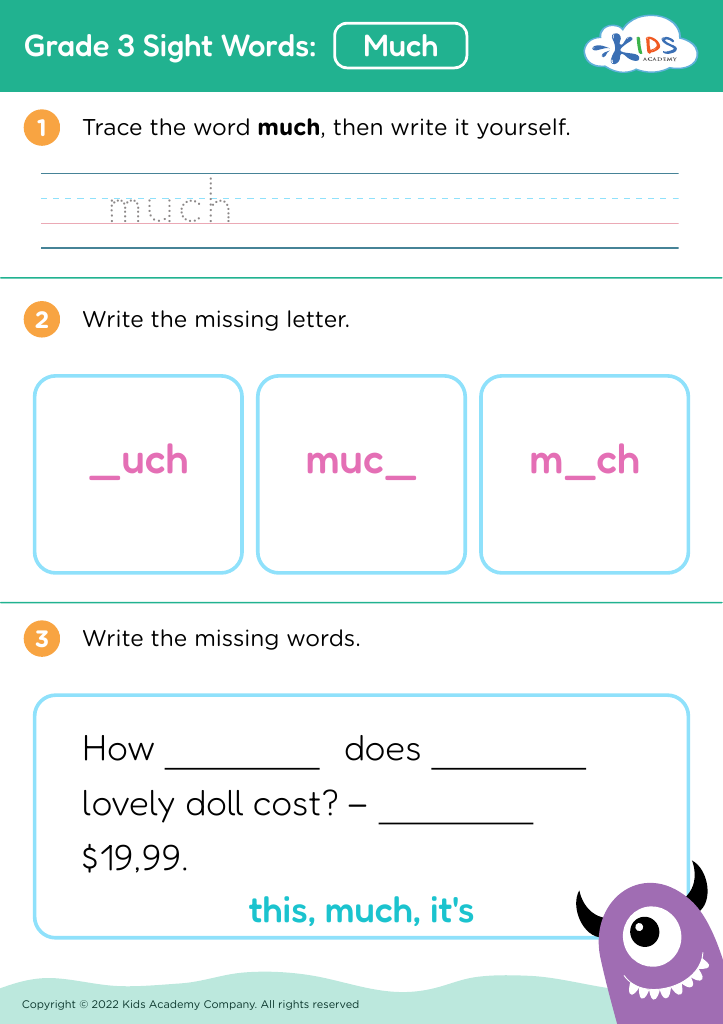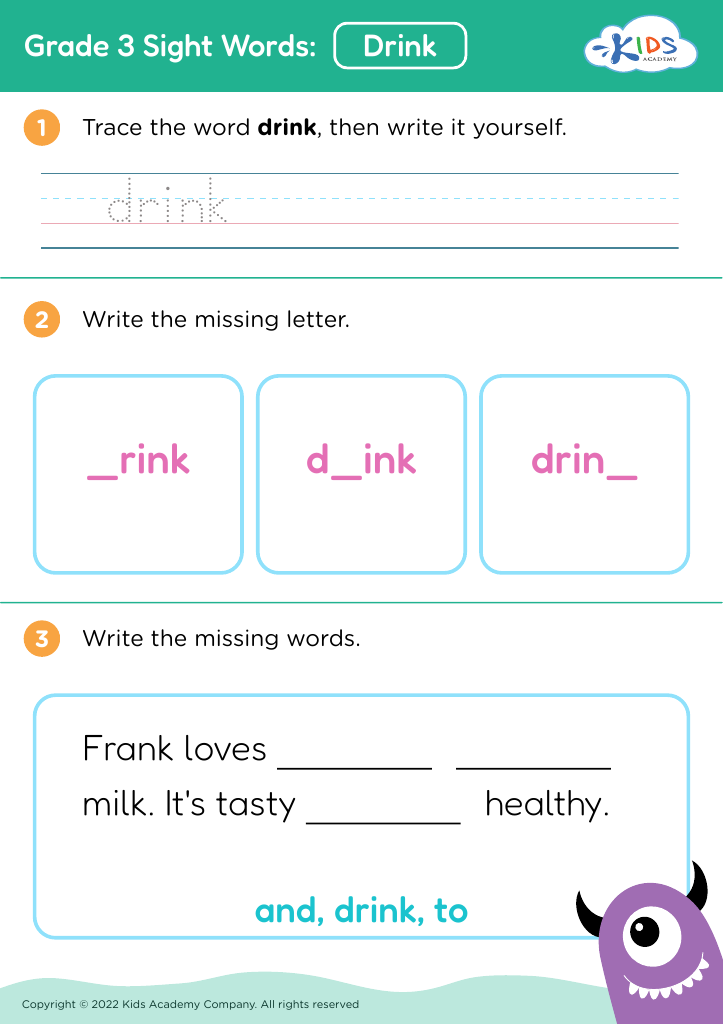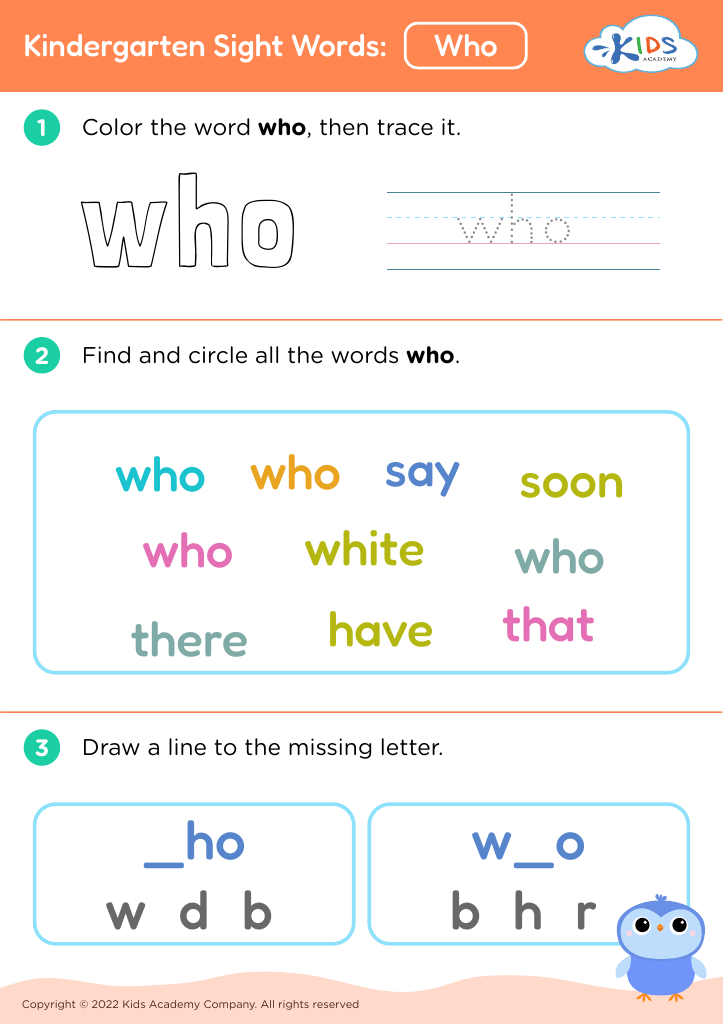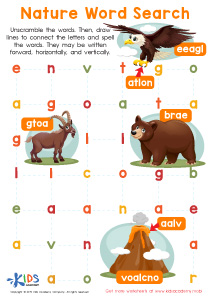Improve vocabulary Sight Words Worksheets for Ages 6-8
3 filtered results
-
From - To
Enhance your child's reading skills with our engaging "Improve Vocabulary Sight Words Worksheets" designed for ages 6-8. These worksheets are carefully crafted to help young learners recognize and practice essential sight words, boosting their vocabulary and comprehension. Each sheet features fun activities, including word searches, fill-in-the-blanks, and matching exercises that reinforce learning in an enjoyable way. Perfect for home practice or classroom use, our resources promote confidence in reading and facilitate early literacy development. Help your child become a proficient reader with targeted sight word practice that sets the foundation for lifelong learning. Explore our worksheets today!
Improving vocabulary and sight words for children ages 6-8 is crucial for their literacy development, which lays the foundation for academic success and effective communication. This age group is typically learning to read fluently, where a robust vocabulary directly impacts their comprehension skills. Sight words, or high-frequency words, are essential because they allow children to recognize these commonly used words quickly without needing to sound them out. This automatic recognition enhances reading fluency and confidence, providing children with a smoother reading experience.
By efficiently recognizing sight words, children can focus more on comprehension rather than decoding, fostering a deeper understanding of the texts they encounter. Additionally, a rich vocabulary expands their ability to express themselves clearly and creatively. As parents and teachers nurture vocabulary through engaging activities, such as reading aloud, word games, or incorporating new words into everyday conversations, they help children build the language skills essential for effective communication.
Moreover, early intervention in vocabulary development can have long-term benefits, reducing the risk of future reading difficulties and improving overall academic performance. Therefore, parents and teachers play a pivotal role in fostering these skills, ensuring that children become confident readers and learners equipped for future success.




















